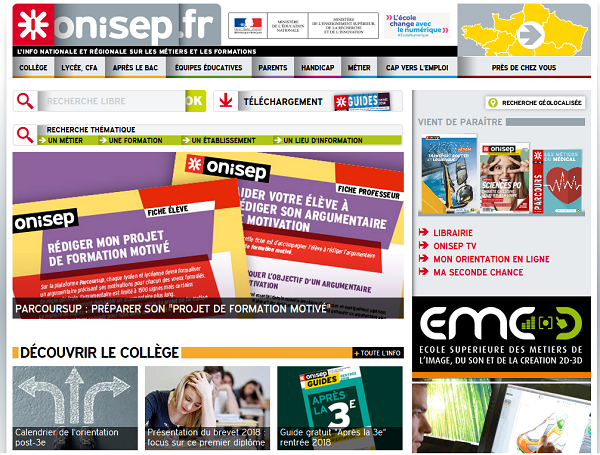Pathways for the future (Parcours avenir)

Every pupil from the first year of lower-secondary school to the final year of upper school (aged 11-18, respectively) will follow this educational path.
It allows pupils to:
- understand the economic and professional world;
- be aware of the diversity of occupations and training;
- increase their sense of engagement and initiative;
- shape the direction they wish to take in their education and professional careers.
During compulsory schooling, the knowledge and skills acquired by pupils within the framework of this pathway are taken into consideration when accrediting their acquisition of the common core knowledge, skills and culture.
The path is facilitated by the digital tool, FOLIOS, with which pupils’ progress throughout lower and upper school can be tracked and recorded.
This initiative fits within the European context in which prominence is given to lifelong guidance by the Resolution on ‘better integrating lifelong guidance into lifelong learning strategies’, adopted on 21 November 2008. The Resolution makes a particular recommendation to Member States ‘to encourage the lifelong acquisition of career management skills.’
Further reading
Additional information
-
Education type:School Education
-
Evidence:N/A
-
Funding source:National government
-
Intervention level:Universal
-
Intervention intensity:Ongoing
-
Participating countries:France
-
Target audience:Careers CouncillorHead Teacher / PrincipalStudent TeacherTeacherTeacher Educator
-
Target audience ISCED:Lower secondary education (ISCED 2)Upper secondary education (ISCED 3)
